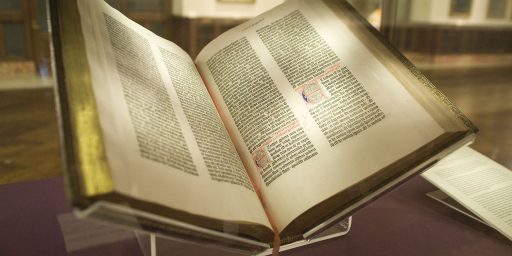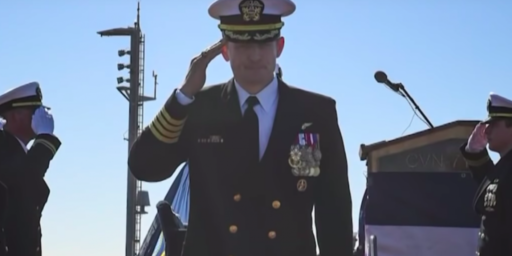Weekly Crowdsource: Summer Non-Fiction, American History Reading Edition
Dray, PhilNow that summer has officially started, its time to crowdsource some recommendations for summer reading. And after reviewing the recent threads on the Civil War, it seems to me that American History (including, but not limited to, the Civil War) is a perfect topic.
Since this topic can easily get out of control, I’m going to suggest that everyone choose their top — as in ONE — American History suggestion. The only rule is it has to be a non-fiction work. Beyond that everything is welcome from biography to chronology. It can focusing on a single battle, a single aspect of American History (like the First Amendment), or be a big, sweeping, mulch-generational work.
Be sure let us know why you think THIS is the book to read over the next month or two.
As always, I’ll compile the results up below. Note that a couple of the suggestions are in the public domain and also appear to have free audiobook versions via librivox.
OTB Non-Fiction American History Suggested Reads:
- Chamberlain, Joshua Lawrence. Through Blood and Fire at Gettysburg.
- Dray, Phillip. There is power in a union : The epic story of labor in America.
- Grant, Ulysses S. The Personal Memoirs of Ulysses S. Grant. (free download via Project Gutenberg)
- Jones, Greg. Honor in the Dust: Theodore Roosevelt, War in the Philippines, and the Rise and Fall of America’s Imperial Dream.
- Kennedy, David M. Freedom From Fear: The American People in Depression and War, 1929-1945.
- Potter, David. The Impending Crisis, 1848-1861.
- Reisner, Marc. Cadillac Desert: The American West and Its Disappearing Water.
- Robertson, James I. Stonewall Jackson
- Roosevelt, Teddy. Autobiography of Teddy Roosevelt. (free download via Project Gutenberg)
- Stone, Geoffry. Perilous Times: Free Speech in Wartime – From the Sedition Act of 1798 to the War on Terrorism
- Watkins, Sam R. Co. Aytch: A Confederate Memoir of the Civil War. (free download via Project Gutenberg)






The Personal Memoirs of Ulysses S. Grant
Humorous, humble and freely available
There is power in a union : The epic story of labor in America, by Philip Dray. Its rise and fall.
Employer-employee relations, rights, duties, and regulatory issues resonate through most OTB posts. There is power documents the genesis of organized labor in response to organized capital, its rise and its fall.
The best book I ever read about the run-up to the Civil War was David Potter’s “The Impending Crisis, 1848-1861.” It reads like a novel.
I am reading Honor in the Dust, which briefly goes through the Spanish-American War, and then describes at length the actions taken to defeat the Phillippine uprising. A good review is here.
Cadillac Desert by Marc Reisner.
With the current drought in west and the likelihood of more frequent extreme weather, water will become an increasing source of contention not only in the US but globally. The story of water development in the West also covers the environmental damage it causes and the political tensions caused by the scarcity. These tensions are only going to increase in the future, and we should be aware of the history and prepared for the trouble that is sure to come.
Only one? boy yer a tuff taskmaster…. Well, if I can only pick one, I’m going with a memoir:
Co. Aytch, by Sam R. Watkins. He joined the First Tennessee Regiment, Co H in May of 1861. On April 26, 1865, he was one of only 7 men who had survived every battle that storied Regiment had been in, from Shiloh to Nashville. The battles he was in reads like a synopsis of a Ken Burns special (Sam was oft quoted in KB’s “Civil War”) He was just a Private but he had a command of the English language which while plain, it also sang.
I forgot a link Co. Aytch.
Free ebook here at the Gutenburg Project.
And here is the song Kennesaw Line which tells the tale of the Battle of Kennesaw Mountain from Sam’s pov.
Joshua Lawrence Chamberlain, Through Blood and Fire at Gettysburg — written by the commander of the Union force (20th Maine) at the most important battle (Little Round Top) of the most important battle of the Civil War. Chamberlain was alsothe commanding officer in charge of acceptance when the Army of Northern Virginia laid down its arms at Appomattox. He instructed the Union troops to to hold their weapons in what was known as the marching salute as the Confederate Army marched past. When the dejected Confederate commander came abreast of the Union commander, he realized what was happening as Chamberlain saluted him with his sword. The Confederate commander wheeled his horse toward Chamberlain, drew his sword and returned the salute, the last salute given the Confederate army.
“Stonewall Jackson,” by James I. Robertson, is pretty much the definitive biography of Jackson. I found it fascinating for the way it illuminated Jackson’s character as well as for the light it shed on the period.
@sam:” the most important battle of the Civil War”
Shiloh?
I could do a few recommendations on the Civil War alone, much less American History in general :-(.
My one recommendation concerns the period 1929-45: the period that forged the modern USA:
Freedom From Fear
Blurb:
I found it to be pretty good ( so did the Pulitzer Committee, FWIW).
The narrative doesn’t argue the point, but it provides the evidence for my belief that FDR really was our greatest President after Washington and Lincoln.
@PD Shaw:
Gettysburg
Autobiography of Teddy Roosevelt.
Great suggestions so far. I’ve added all of them to the top of the page.
BTW, my suggestion is Geoffrey Stone’s Perilous Times: Free Speech in Wartime – From the Sedition Act of 1798 to the War on Terrorism. Stone’s book is a sweeping history of the first amendment, American journalism, and anti-war movements. Packed with wonderful anecdotes and great excerpts from source documents, it provides a sobering look at how the right to free speech has waxed and waned over the history of this great country.
My To Be Read List has gotten longer.
Curses!
Also too, can we make this a regular feature-a fall list, a winter list, etc.?
A fiction list might be of interest, too-lots of good historical fiction out there.
@stonetools:
If it helps, I’m pretty sure that all of the public domain books (the Auto-bios of T Roosevelt and US Grant, plus Co. Aytch) are all available as free audiobooks via librievox.com.
I have been planning to do other media lists (including fiction). Right now I’m also interested if people are digging the entire “weekly crowdsource” column/idea.
@Kari Q: Cadillac Desert is an excellent book, not just a book about water rights and environmental damage, but about regulatory capture of federal agencies and agencies that even evolve into a law unto themselves, more powerful than Presidents. It also tells the story of great planners that built colossal works, and of the unnamed dead that gave their lives to build those dreams and those that lost them when the levies and dams failed.
@sam: “Gettysburg”
Hmmm, could have sworn you meant Shiloh.
@PD Shaw:
We could probably have a whole nother thread on the question of the most important battle of the Civil War
@Matt Bernius: I’m also interested if people are digging the entire “weekly crowdsource” column/idea.
It’s doubleplusgood. I’m definitely into it.
@Kari Q:
A great read, especially in light of projections that the great Colorado River Watershed is probably not going to be able to meet future water demands of the Southwest from Las Vegas to Southern California.
I haven’t read them yet, butAbraham Lincoln’s speeches and letters are available as a free Kindle download (I “purchased” them last night).
http://www.amazon.com/Speeches-Letters-Abraham-1832-1865-ebook/dp/B004UJV3VC/ref=sr_1_1?ie=UTF8&qid=1372770706&sr=8-1&keywords=Letters+of+Abraham+Lincoln
I second Grant’s Memoirs. Also free, and they’re a great read.
@Rob in CT: You might consider as an adjunct to the letters and speeches: Lincoln’s Sword — The Presidency and the Power of Words by Douglas L. Wilson. Wilson, one of the most important Lincoln scholars alive. He takes several of the key speeches and breaks down their history, the revision process and how the words furthered Lincoln’s agenda. Most interesting to me is that the speeches Lincoln gave were frequently different than the original text that was officially distributed, which was almost certainly by design. Also won the Lincoln Prize.
Greetings:
“Comanches: The History of a People” by T.R. Fehrenbach
“Crucible of War” by Fred Anderson.